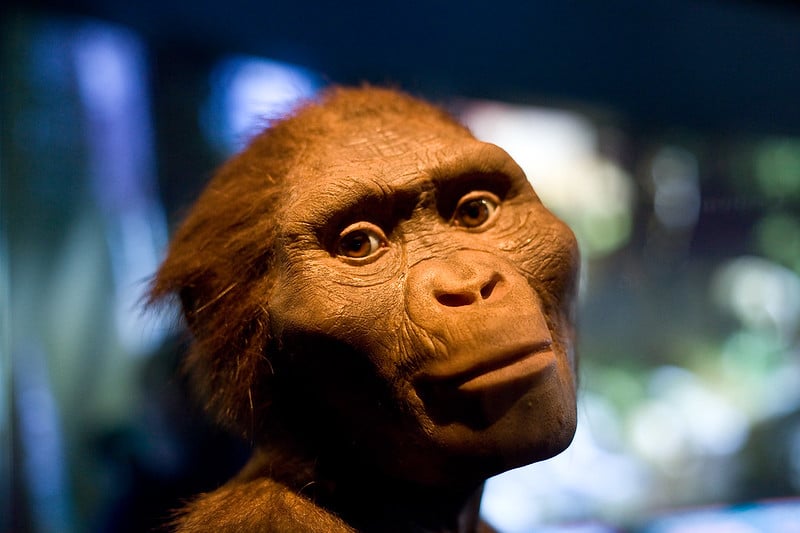
My next book, AIR-BORNE, will be coming out in February. You’ll be able to recognize it in your local bookstore by its groovy cover:

If the cover looks surreal, that’s no accident. Aerobiology—the science of airborne life——has shown us that the atmosphere is eerily alive, from the breath you just inhaled to the clouds that float overhead. I hope when you’re done reading AIR-BORNE, the sky will look different—a floating garden rather than a desert.
You can pre-order AIR-BORNE now. I will share updates as the publication date approaches both here and on a new page on my website.
Lucy at 50
This year marks the fiftieth anniversary of the discovery of “Lucy,” an astonishingly well-preserved 3.2-million-year-old fossil that belonged to a previously unknown species of ancient human relatives, Australopithecus afarensis.

To celebrate, I’ll be talking on November 14 at New York’s 92nd St. Y with Donald Johanson, who discovered Lucy with his colleagues in Ethiopia in 1974. We’ll look back at Lucy’s discovery, and discuss how it changed the way we think about human evolution. We’ll also talk about some of the remarkable advances in our understanding of our origins in the half-century since. If you’re in New York, please join us for a fascinating evening.
Hobbits and Cheating HIV
In case you missed them, here are some stories I’ve written in the past few weeks (gift links throughout):
Unresponsive Brain-Damaged Patients May Have Some Awareness. I’ve been following research on the disorders of consciousness for over 20 years now. It’s a harrowing yet absorbing subject. The research has crept along slowly, but neurologists are starting at last to get a sense of how many people still have some awareness, even if they seem to lack consciousness.
Engineered Virus Steals Proteins From H.I.V., Pointing to New Therapy. This story builds on the feature I wrote for Quanta a few months ago on the social life of viruses. Scientists have wondered if cheating viruses could be turned into antiviral drugs. One team of scientists has taken a big step towards that goal with H.I.V.
Scientists Find Arm Bone of Ancient ‘Hobbit’ Human. I’ve been writing about Homo floresiensis almost as long as I have written about disorders of consciousness. Twenty years after their discovery, new bones of these mysterious, diminutive hominins continue to come to light.
How Did Roses Get Their Thorns? They’re not thorns, technically speaking—they’re prickles. But whatever you call them, their evolutionary history is surprising.
A Test for Life Versus Non-Life. I spent a few pages in my 2021 book Life’s Edge recounting the work of physicist Sara Walker, who is trying to create a theory of life. Now Walker has written a book of her own to present her ideas in detail. I took the opportunity to write an article about her and the big, controversial idea she’s helping to develop, known as assembly theory.
The Chimps Who Learned to Say "Mama.” The early history of studies on ape behavior is full of sensational, unethical research. (If you haven’t seen the documentary Project Nim, I highly recommend it.) I wrote about an unusual archival study of old videos that raises an intriguing possibility: our common ancestors with chimpanzees may have had a lot of the building blocks for speech. Which raises the fascinating question: why don’t chimpanzees talk?
Early Humans Left Africa Much Earlier Than Previously Thought. Here’s another story that has been slowly brewing for years, and which I’ve covered before. The more scientists look at the DNA of living humans and extinct relatives, the more likely it is that our species expanded out of Africa numerous times, only to fizzle out. It’s very different than the old “Out of Africa” model of human origins in the 1990s, in which we only emerged once about 50,000 years ago. And yet it does appear that after several dead-end expansions, the last one led to humans taking over the whole planet. It’s fair to ask: what was different?
You just read issue #177 of Friday's Elk. You can also browse the full archives of this newsletter.